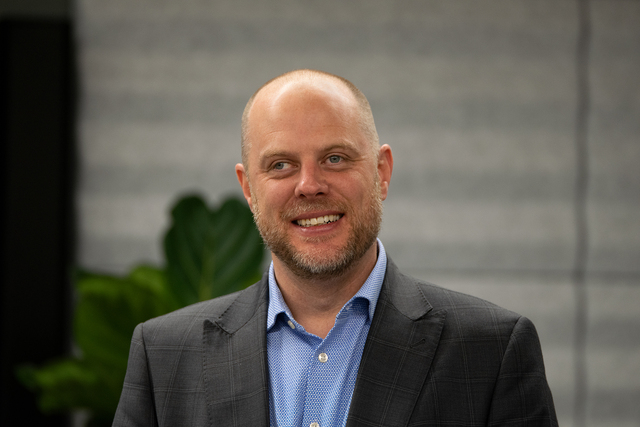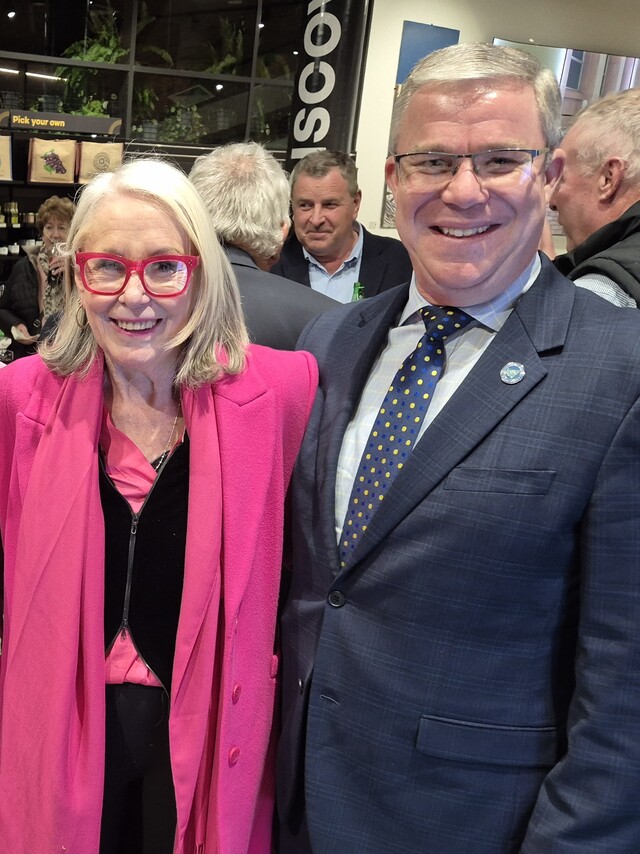The Good Oil by Rod Brown*
Leading demographer Bernard Salt has calmed fears that Australia’s population growth over the next 40 years will significantly impact on our environment and living standards.
It follows an ABS report that Australia’s population is growing at twice the rate of the rest of the world. Then the Greens got excited and even ex-Labor frontbencher Kelvin Thomson began hyperventilating about a “recipe for environmental devastation, rising interest rates and unaffordable housing”.
Salt spoke at a recent Regional Development Australia gathering about how Australia can cope with 35 million people if the necessary adjustments are made. He noted that “we do need to alter our lifestyle plan very carefully for this, because we can’t continue to live the way we are living at the moment”.
I fully agree with Salt. The necessary adjustments must include a solid debate about urban and regional development.
The social and environmental cracks are widening every day in our four largest cities. To this end, Federal Minister for Infrastructure, Transport, Regional Development and Local Government Anthony Albanese says that by January 2012 all States have agreed to have in place capital city plans and that he will be tying future Commonwealth urban and infrastructure to those plans.
But no policy research is done at the Federal level.
As with many policy agendas these days, the Feds are setting the broad parameters via the Council of Australian Government (COAG) process, and then leaving it to the States to basically do as they like.
As I write, Federal Minister for Agriculture, Fisheries and Forestry Tony Burke has been given the job of developing a strategy for managing Australia’s population growth. This sounds like a token effort, and while the Department of Agriculture, Fisheries and Forestry has lots of spare capacity, it hasn’t got the smarts to properly consider the population issue.
Rudd really has to seize the high ground before Abbott does.
The smarter option would be a Department of National Development, perhaps modelled on the Commission for the Future (1986–88). Its role would be to really understand the population – environment nexus, urban congestion, land supply and housing costs, the cost benefits of decentralisation, the impact of immigration and so forth.
Local Government should be pushing very hard for this outcome, because these are your bread and butter issues.
IDA – Freo’s competitive advantage
Last month we began a series of snapshots of regions with potential to build on particular competitive advantages, and we featured Baulkham Hill as a possible Futures Hub.
In Western Australia, we have the bustling community of Fremantle at the mouth of the Swan River.
First settled by Europeans in 1829, Fremantle is now a very multicultural microcosm of Perth, as Brits, South Africans, Indians, Mauritians and so forth flock in. It has that funky dirt under the fingernails feel to it, similar to other portside communities like St Kilda, Port Adelaide and Balmain.
However, its point of difference is the juxtaposition of heritage buildings, restaurants, fishing boats, defence and marine activity, and the full spectrum of accommodation for tourists, consultants, yuppies, students, nurses and pensioners.
I recently spoke with one of Bob McMullan’s advisers about Fremantle’s potential as a globally recognised international aid delivery hub. Bob is a smart cookie who appreciates industry positioning and global branding. He hails from Perth, is a former Trade Minister, is currently the parliamentary secretary for international development assistance and is exiting politics at the next election.
Anyway, we talked about the potential for Freo to organise and market itself as an international development aid (IDA) precinct. It is the Australian air/sea port closest to Africa and the Middle East. It has extensive engineering, water, education, food and service industry capabilities, and it has the expats that can make the connections back in Africa.
In recent years, we’ve tried unsuccessfully to get Cairns and Darwin interested in aid precincts, albeit with a different geographical focus. But I’m sure Bob McMullan understands it, and we’ll be talking to him in his post political career.
Hospital networks – opportunity for Local Government
The Rudd Government is committed to empowering local clinicians and local communities and building strong local hospital networks under its new health agenda. These networks would have a governing council responsible for patient care, primary health care, budgets and so forth.
There are at least four roles for Local Government:
- facilitate the process of
building these local networks –
you know the region and the
people - partners in primary health
care and prevention, critical
in relieving pressure on the
hospital system as the
population ages - extension of your role in
local training networks
to include training of hospital
administrators and nurses - improved facilitation of
planning and development
approvals, spatial planning
and waste management
services on behalf of hospital
networks.
Judging by my recent conversation with a senior Department of Health bureaucrat, the Feds haven’t twigged yet to these possibilities. But this could change if the Australian Local Government Association (ALGA) was to flex some muscle after the COAG meeting later this month. Contact us for details.
Barnaby Joyce has
a real window
Senator Barnaby Joyce, after his off the cuff remarks at the National Press Club, proved he hadn’t the credentials to be a minister for finance. His new shadow portfolio of regional development and infrastructure is a better fit.
His experience in regional matters and his energy suggests he has a real window to work with John Cobb, the shadow minister for agriculture, to construct a new deal for Australia’s regions.
The reason lies in the huge vacuum that currently exists in regional investment attraction, agricultural research, regional city planning, raw material processing, regional branding, the food trade imbalance and water irrigation infrastructure.
Don’t mention the Church…
One of our Cockatoo members recently went to a fundraiser in Adelaide and reported that the impressive Senator Nick Xenophon was the guest speaker – “He was excellent, quite amusing, studied in his analysis of the Israel/Palestine issues, and plans to bring on a Senate debate in May on the issue.”
Xenophon certainly is making a mark in Canberra. He does his homework, selects his issues and talks sense. He is a cult figure among journalists and political observers and his popularity is aided by the conservatism of the two major parties.
The most recent example was their move to snuff out Xenophon’s proposed inquiry into the Church of Scientology. The obvious concern was that any snooping could spread to mainstream religions, and neither Rudd nor Abbott wanted this is in an election year.
Xenophon might now shift his focus to the tax exempt status of churches, which is ripe for review. We doubt that the Henry Review of the taxation system (still unreleased) would have bought into this.
In this context it is fascinating to learn via a Sunday Age survey of Federal/State ministers and shadow ministers that three Federal ministers are non believers: Nicola Roxon, Greg Combet and Chris Bowen. And the Finance Minister, Lindsay Tanner, who will be a major player in any such review, owned up to being agnostic!
*Rod Brown is a Canberra-based consultant specialising in industry regional development, investment attraction, clusters and accessing Federal grants. He also runs the Cockatoo Network. He can be contacted at apdcockatoo iprimus.com.au or phone (02) 6231 7261.
Go to the blog at www.investmentinnovation.wordpress.com for 550+ articles on issues relevant to Local Government.







